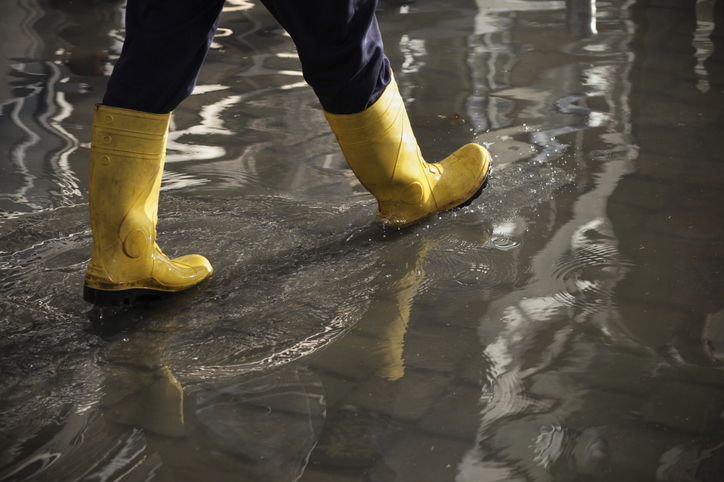Extreme Weather Safety
Rhode Island EnergyStay safe in extreme weather
We’re here to help you weather any storm. Follow our safety and prevention tips to keep you and your family safe in case of flooding or hurricanes.

Flooding
Follow our safety and prevention tips to keep you and your family safe in case of severe flooding.
Flood safety tips
- Leave the gas meter on to maintain proper pressure in the gas piping and to protect lines in case of a flood
- Check outdoor natural gas appliances such as pool heaters and gas grills
- Listen for important announcements from emergency officials on television and radio about possible evacuations or emergency procedures
- Check on elderly family members and neighbors who may need assistance during an outage
Check your appliances for hidden flood damage
Floodwater can permanently damage gas and electrical equipment, even after everything looks dry. Electronics are prone to contamination and corrosion, which can result in malfunctions — even fires.
Be aware that water damage to your home or business may have resulted in your being disconnected from our natural gas system. If your gas was shut off during a flood or your appliances were damaged by water, contact a licensed plumbing or heating contractor before you call RIE to restore your service.
Make sure all electrical and gas equipment has been inspected and deemed safe by a professional. Rhode Island Energy can’t enter your property until all floodwater is removed, repairs are complete, and gas appliances are in working condition.
Hurricanes
A hurricane is a storm that forms over warm ocean waters. Threats from hurricanes include powerful winds, heavy rainfall, storm surges, coastal and inland flooding, rip currents, tornadoes, and landslides. Hurricanes can affect areas more than 100 miles inland.
Hurricane tips
- Sign up for warnings and alerts from the National Weather Service and your local officials through phone, text, and social media
- Receive notifications for your community’s warning system and turn on Wireless Emergency Alerts in your smartphone settings
- If your property is at risk of flash flooding, watch for flood signs such as heavy rain
- Practice relocating to a safe shelter, such as a FEMA safe room or storm shelter
- If you cannot relocate, find protection inside a small, interior, windowless room in a sturdy building on the lowest level that is not subject to flooding
- Know your evacuation zone
- If you must evacuate to a public shelter, bring items that can protect you and others from illness, such as hand sanitizer, cleaning materials, and face coverings